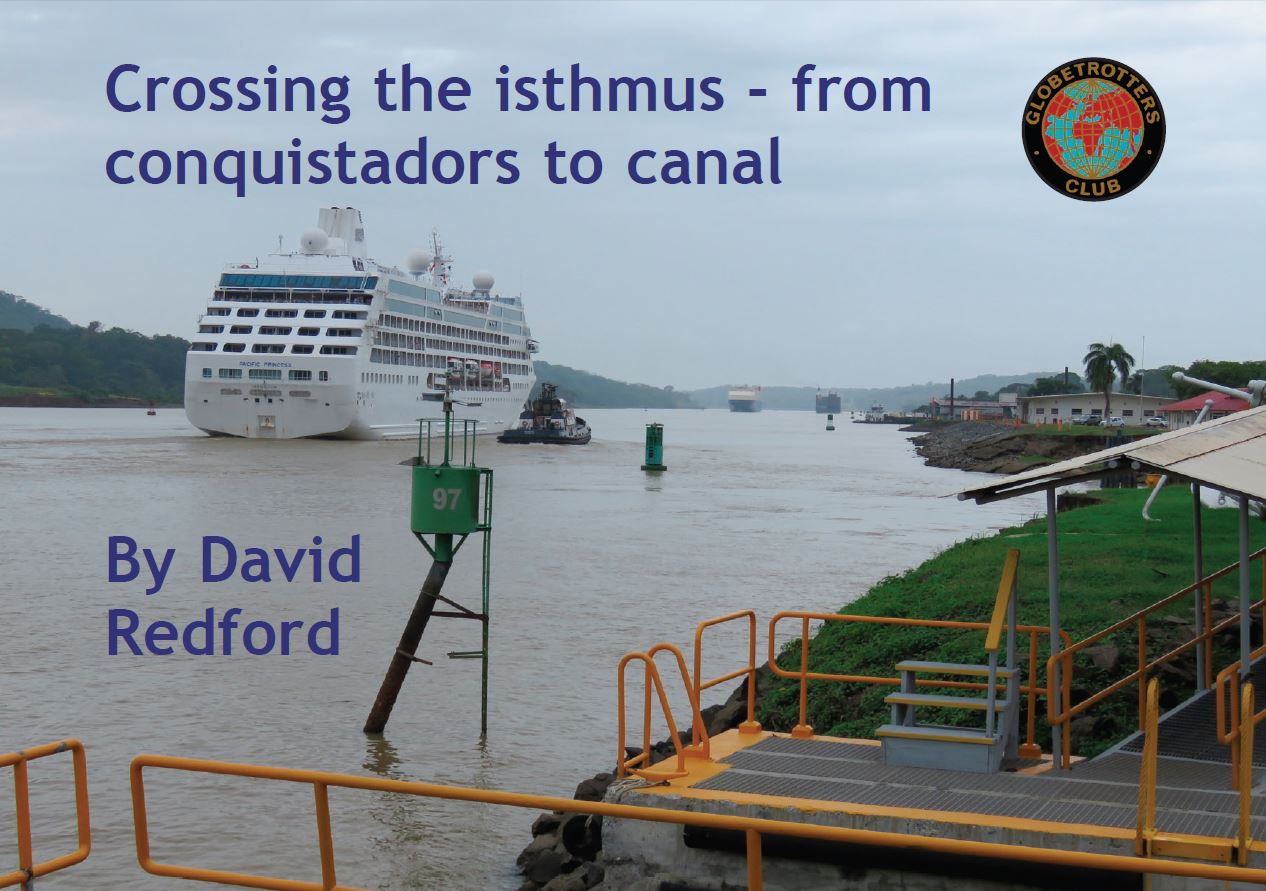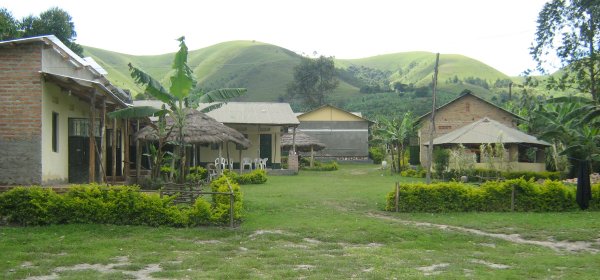We dragged ourselves ever upwards and onwards, I
thought my get up and go, with the help of Guarana and good whisky was
still going strong; but rather than over the hill – I was finding it
difficult too even get up this hill! My friends and I were on a steep
walk that was just short of being able to be described as a climb –
fifty minutes of mud steps, not cut out but worn into the so called
path by travellers over the years, always at least eighteen inches in
height. We climbed through a rising rain forest of trees and
roots that
would make their way up to a cold pool that was fed by a lovely
waterfall, the highest of two that finally spilled their waters into
the rushing river below. The roots would act as handholds or
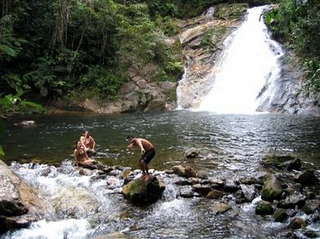 footholds
as we dragged ourselves up from the 35ºC at the start to a
comfortable 27ºC at the top. This was the sort of
tough but
pleasant tramp that would be banned by Heath and Safety committees in
the UK, but with care, no problem for anyone at all, not even for me!
My companions were two lady lawyers, a female translator and a fit
young man, arrogant and confident, much as I must have been at his time
of life.
footholds
as we dragged ourselves up from the 35ºC at the start to a
comfortable 27ºC at the top. This was the sort of
tough but
pleasant tramp that would be banned by Heath and Safety committees in
the UK, but with care, no problem for anyone at all, not even for me!
My companions were two lady lawyers, a female translator and a fit
young man, arrogant and confident, much as I must have been at his time
of life.
My brother had recommended me to visit Boissucanga,
locally known as ‘Boi’ and stay in a lovely rustic house owned by
‘Jenny’ not far from the beach in this yet as unspoilt resort, used by
‘Paulistas’ as a weekend escape from their large pulsating city that is
the driving engine not only of Brazil but also of the whole of South
America. Around three hours drive from Sao Paulo or about
nine from Rio
de Janeiro, Boi is to the south, just passed Ilha Bella, near Sao
Antonio. Boi comes after the fashionable towns of the ‘Costa
Verde’,
therefore much cheaper to stay, much less crowded and practically no
foreign tourists. There is always a place to stay, whatever
the size of
your budget – Extremely well designed 5* small Hotels (for example
Juquey Praia Hotel – R$ 300 [with breakfast] R$ 390 [with breakfast and
dinner] per day); Pousadas [Guest Houses] (various standards of
simplicity, from R$ 100 to R$ 200 per day) as well as Jenny’s very
reasonably priced rustic haven (self- contained houses at R$100 per
day).
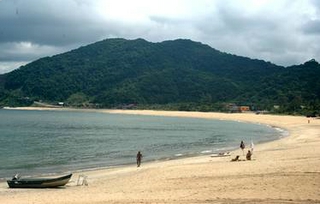
No crowds on very different beaches, some with waves and some calm and the three Islands just offshore, make this just the resort to take some time out! Not to say there is nothing to do!
The three islands provide perfect picnic beaches, not spoilt by vendors of any type. We took our own beer, sandwiches, prawns and fruit. We swam, went snorkelling and generally explored the small area but mostly wallowed in the warm clear water. A short, pleasant, forty minute boat ride from the mainland and costing only about £6-00 a head to taken there and then to be picked up again in the late afternoon. Two days of my visit I spent enjoying myself on these relaxing three Islands.
Boissuganga, itself a small simple town but with a bank I was able to draw money out of with my plastic from its electronic cashier (Bradesco Bank). A curved empty beach, calm water, excellent simple bars right down by the water side with marvellous fish, prawns meals straight out of the sea and on to your table -The sound of the sea lapping on the shore, mixing with the gentle playing of guitars at the start of sunset. The splash of yellow and gold of the sky, reflecting off the locals as well as the water and the sound of their clapping as the sun went down and day turned into night.
This was the signal for the waterside bar (Parati), to
awaken and the sound of Brazilian Popular Music, to drift across the
moonlit beach. Brazilians love to party and as usual many of
them
joined in the singing – Dancing is something you cannot stop them doing
once they hear the sound of exciting music.
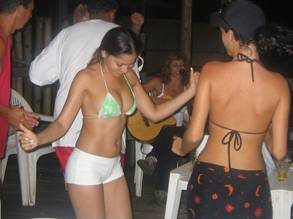
Two of the evenings I thought I would pop out for a dance and though a small town, there were always three or four places one could go to dance. Music of all different types in Bistro bars round the town where I could dance the night away or least until the early hours of the morning, after which I would stagger home, not drunk, just exhausted from having such a good time with my lovely companions.
As I gathered my thoughts together, sitting on the bus awaiting it to start my journey back to Rio de Janeiro. I had made sure it was taking the coast road and I was sitting on the seaside of the coach so that I could see this lovely coast line as I made my way back north up the ‘Costa Verde’
Every now and again I discover or hear of a gem of a place, still not exploited or spoilt and I pass them on to the Globetrotters Club via the e-news or GT Magazine. So guys, Boissucanga is another such place – Why not, just go for it!
Send Jenny an e-mail for more information. jennym@uol. com. br & boijmr@aol. com .
All photos © by Tony Annis.

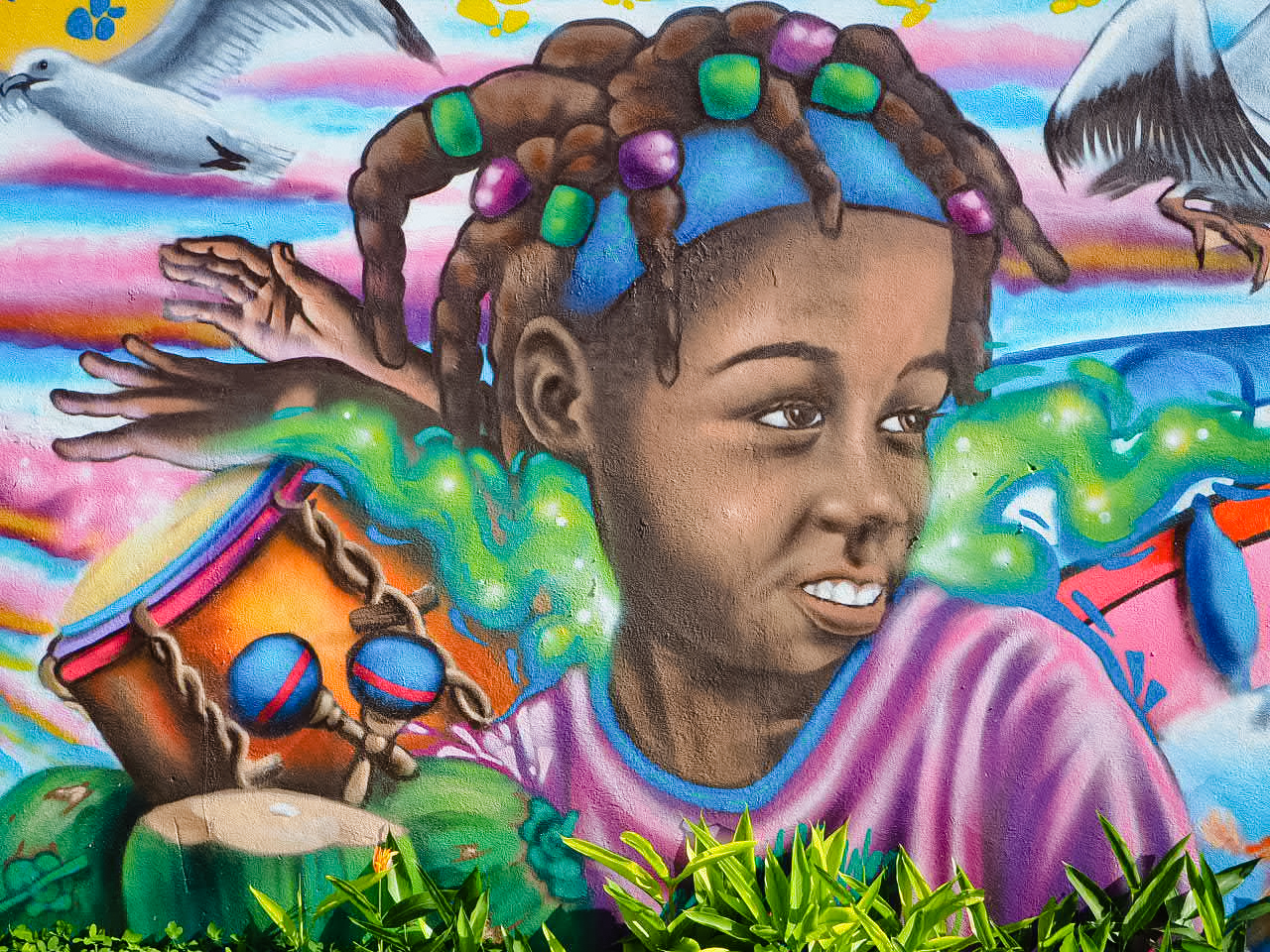
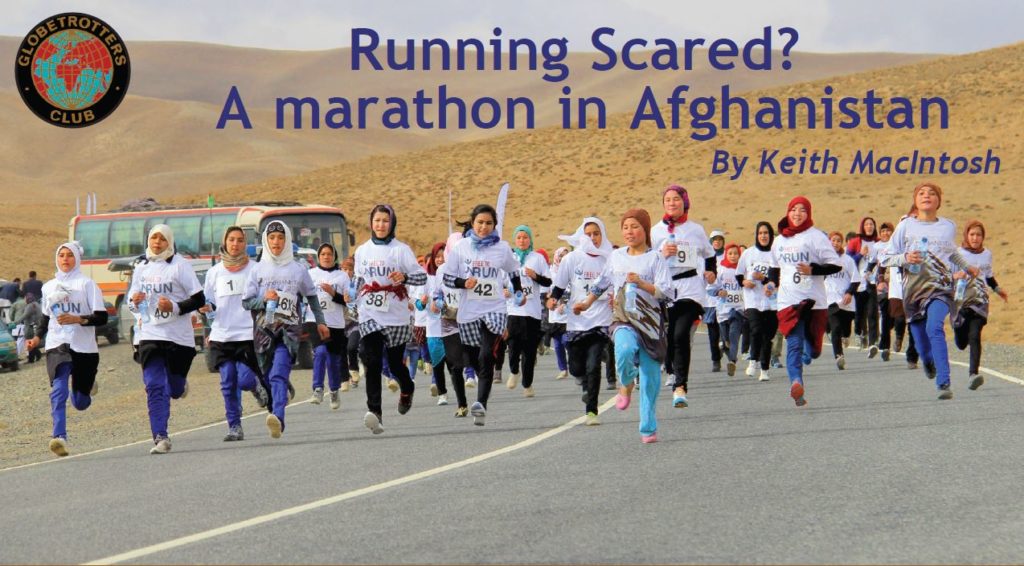
 Hand and Shears Travel Talks.
Hand and Shears Travel Talks.